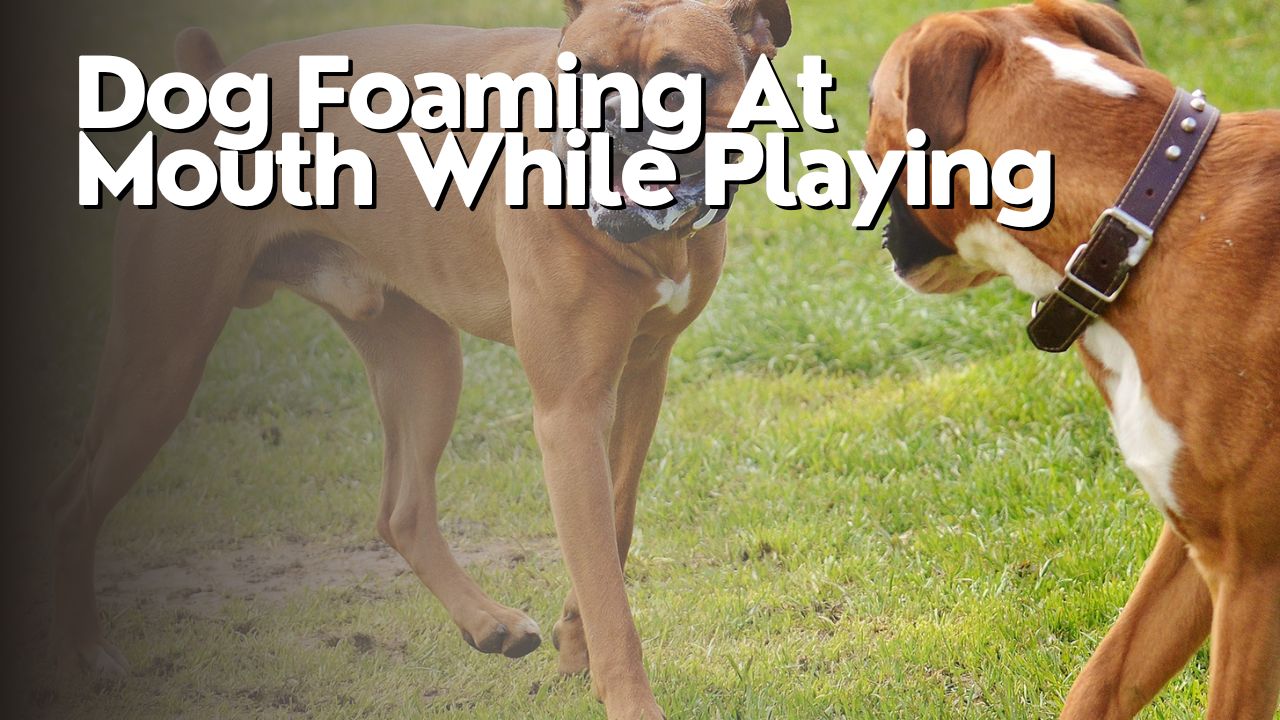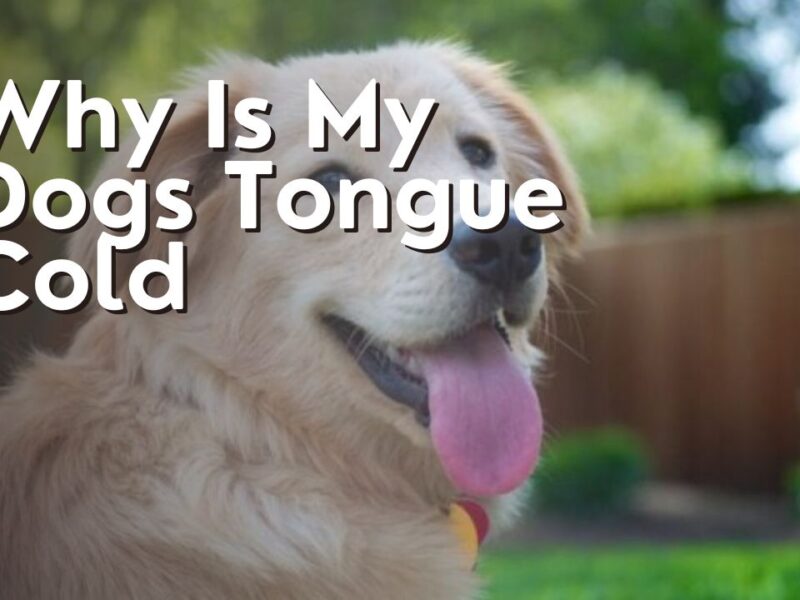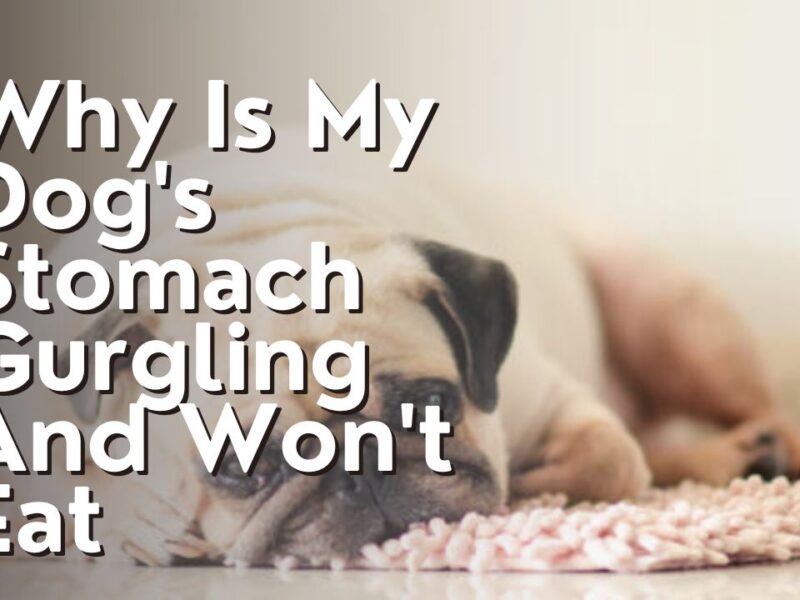Hey there! Have you ever noticed your furry friend foaming at the mouth while playing? It might seem alarming, but don’t worry, it’s actually quite common.
In this article, I’ll walk you through some possible reasons why your dog might be foaming at the mouth during playtime. From heat and overexertion to excitement and salivation, we’ll explore the various factors that could be at play.
So, let’s dive in and unravel the mystery behind this foaming phenomenon!
Heat and Overexertion
The dog’s foaming at the mouth may be a sign that it is overheated and overexerted. As a dog owner, it is important to recognize the signs of heat exhaustion and take immediate action to cool down your furry friend.
Dogs can easily overheat, especially during playtime or exercise on hot days. When dogs become overheated, their bodies may not be able to regulate their temperature effectively, leading to excessive panting and, in some cases, foaming at the mouth.
To prevent heat-related issues, it is crucial to provide your dog with plenty of water and shade during playtime. Additionally, consider adjusting the intensity and duration of their activities to ensure they don’t overexert themselves.
If you notice your dog foaming at the mouth while playing, it is essential to take immediate action. Move them to a cooler area, offer them water, and use cool towels or water mist to help lower their body temperature.
Remember, prevention is key. Avoid exercising your dog during the hottest parts of the day and be mindful of their limits. If you suspect your dog is experiencing heatstroke or heat exhaustion, it is crucial to seek veterinary attention promptly.
By being proactive and attentive to your dog’s needs, you can ensure their safety and well-being during playtime.
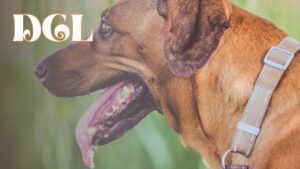
Excitement and Salivation
When it comes to excitement and play, it’s not uncommon for dogs to produce excess saliva. This can lead to foaming at the mouth and excessive drooling.
To manage this, it’s important to ensure that your dog is hydrated and not overheated, as these factors can contribute to excessive salivation.
Additionally, providing your dog with appropriate toys and training them to have an outlet for their excitement can help reduce the amount of saliva produced during play.
Saliva production during play
During play, you’ll notice your dog’s mouth foaming due to increased saliva production. This is a normal and natural response in dogs and is often seen when they are highly excited or engaged in vigorous activities. Here are three reasons why this happens:
- Lubrication: Increased saliva production helps to lubricate the mouth and throat, allowing the dog to swallow more easily and prevent any discomfort during play.
- Cooling mechanism: Dogs do not sweat like humans do, so they rely on panting and salivation to cool down. The foaming saliva helps to dissipate heat from their bodies, keeping them from overheating during intense play.
- Emotional response: Foaming at the mouth can also be a sign of heightened emotions, such as excitement or anticipation. It’s their way of expressing their enthusiasm and joy during playtime.
So, the next time you see your dog foaming at the mouth while playing, know that it’s a natural and healthy response that helps them enjoy their playtime to the fullest.
How to manage excessive salivation
To manage excessive salivation, you can try implementing some calming techniques.
First, take breaks during playtime to allow your dog to rest and calm down. This can help prevent overstimulation and reduce saliva production.
Additionally, try incorporating more mental stimulation into your dog’s routine. Puzzle toys and training exercises can help redirect their focus and reduce excitement levels.
Another helpful technique is to practice deep breathing exercises together. This can help both you and your dog relax and decrease excessive salivation.
Lastly, make sure your dog is well-hydrated and has access to fresh water at all times. Dehydration can sometimes contribute to excessive drooling.
By implementing these strategies, you can help manage your dog’s excessive salivation during playtime.
Anxiety and Fear
If your dog is foaming at the mouth while playing, it’s likely due to anxiety or fear. Dogs can exhibit excessive salivation as a response to stressful situations or when they feel threatened. It’s important to address this issue to ensure your dog’s well-being and promote a positive play experience.
Here are a few tips to help manage anxiety and fear in your dog:
- Create a safe and comfortable environment: Provide a designated space where your dog can feel secure and retreat to when feeling anxious. This could be a cozy crate or a quiet corner of the house.
- Gradual exposure to triggers: If your dog is fearful of certain stimuli, such as other dogs or loud noises, gradually introduce them in a controlled manner. Start with a distance that your dog is comfortable with and slowly decrease the distance over time.
- Positive reinforcement: Reward your dog for calm behavior and gradually increase the reward as they become more comfortable. This could include treats, praise, or playtime.
- Consult a professional: If your dog’s anxiety or fear is severe or persistent, consider seeking help from a professional dog trainer or veterinarian. They can provide guidance tailored to your dog’s specific needs.
By implementing these strategies, you can help alleviate your dog’s anxiety and fear, reducing the likelihood of foaming at the mouth while playing. Remember, a happy and relaxed dog makes for a more enjoyable playtime for both of you.
Toxic Substance Ingestion
As I delved deeper into understanding why a dog might foam at the mouth while playing, I came across another potential cause: toxic substance ingestion. This is a serious matter that requires immediate attention and intervention.
When a dog ingests a toxic substance, it can lead to a range of concerning symptoms, including excessive drooling and foaming at the mouth. Some common culprits include household chemicals, certain plants, medications, and even certain types of food. It’s crucial to identify the source of the toxicity and seek veterinary assistance promptly.
If you suspect your dog has ingested something harmful, don’t waste any time. Contact your veterinarian or a pet poison hotline immediately. They will guide you through the necessary steps to ensure your dog’s well-being. Remember, time is of the essence when dealing with toxic substance ingestion.
Prevention is always the best approach, so make sure to keep hazardous substances securely stored out of your dog’s reach. Additionally, be cautious about what plants you have in your home or yard, as some can be toxic to dogs.
Understanding the potential dangers of toxic substance ingestion is vital for every dog owner. Stay vigilant and prioritize your furry friend’s safety at all times.
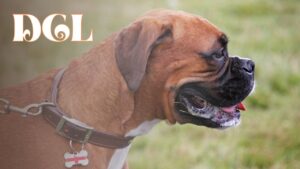
Dental and Oral Health Issues
One common issue that can affect dogs is dental and oral health problems. Just like humans, dogs can experience a range of dental issues, including plaque buildup, gum disease, and tooth decay. These problems can cause discomfort and pain, making it difficult for dogs to eat and play. Additionally, poor oral health can lead to more serious health conditions, such as heart disease and kidney problems.
It is important to take care of your dog’s teeth and gums to prevent these issues. Regular dental care is essential for maintaining your dog’s oral health. This includes brushing their teeth regularly with a dog-friendly toothpaste and toothbrush. You can also provide chew toys and dental treats that help remove plaque and tartar. It is also important to schedule regular dental check-ups with your veterinarian, who can perform professional cleanings and identify any potential dental problems.
In addition to dental care, a healthy diet can also contribute to your dog’s oral health. Feeding them a balanced diet that includes high-quality dog food can help prevent dental issues. Avoid giving your dog sugary treats and table scraps, as these can contribute to tooth decay.
By taking care of your dog’s dental and oral health, you can ensure they have a happy and healthy smile for years to come.
Frequently Asked Questions
Can a dog foam at the mouth while playing due to dental or oral health issues?
Yes, a dog can foam at the mouth while playing due to dental or oral health issues. It’s important to monitor their playtime and consult a vet if you notice excessive foaming or any other concerning symptoms.
What are some common signs of anxiety and fear in dogs?
Some common signs of anxiety and fear in dogs include excessive panting, trembling, pacing, whining, hiding, and aggression. It’s important to understand and address these signs to ensure the well-being of our furry friends.
Are there any specific toxic substances that dogs commonly ingest which can cause them to foam at the mouth?
There are several toxic substances that dogs commonly ingest which can cause them to foam at the mouth. Some examples include certain cleaning products, certain plants, and certain medications.
Can overexertion or heat exhaustion lead to a dog foaming at the mouth while playing?
Yes, overexertion or heat exhaustion can cause a dog to foam at the mouth while playing. It’s important to make sure dogs have access to water and take breaks in hot weather to prevent this.
How can dog owners differentiate between normal excitement and excessive salivation while their dog is playing?
Dog owners can differentiate between normal excitement and excessive salivation by observing their dog’s behavior. Excessive salivation may include continuous foaming at the mouth and difficulty breathing, whereas normal excitement is accompanied by panting and wagging tail.
Conclusion
In conclusion, if your dog is foaming at the mouth while playing, it is important to consider various factors. These factors include heat and overexertion, excitement and salivation, anxiety and fear, toxic substance ingestion, and dental and oral health issues. By understanding these possible causes, you can take appropriate action to ensure the well-being of your furry friend.
Remember to monitor your dog’s behavior closely and consult with a veterinarian if you have any concerns or if the foaming persists. Your dog’s health and happiness should always be a priority.
